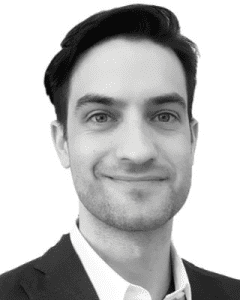Monday, May 20, 2024, 12:30 – 2:00 pm, Talk Room 2
The Vision Sciences Society is honored to present Michael A. Cohen with the 2024 Elsevier/VSS Young Investigator Award.
The Elsevier/VSS Young Investigator Award, sponsored by Vision Research, is given to an early-career vision scientist who has made outstanding contributions to the field. The nature of this work can be fundamental, clinical, or applied. The award selection committee gives highest weight to the significance, originality and potential long-range impact of the work. The selection committee may also take into account the nominee’s previous participation in VSS conferences or activities, and substantial obstacles that the nominee may have overcome in their careers. The awardee is asked to give a brief presentation of her/his work and is required to write an article to be published in Vision Research.

Michael A. Cohen
Assistant Professor, Department of Psychology & Program in Neuroscience, Amherst College; Research Scientist, McGovern Institute for Brain Research, Massachusetts Institute of Technology
The 2024 Elsevier/VSS Young Investigator Award goes to Professor Michael A. Cohen for his fundamental contributions to the scientific study of perceptual awareness. Michael Cohen is an Assistant Professor in the Department of Psychology and Program in Neuroscience at Amherst College and is also a Research Scientist at the McGovern Institute for Brain Research at the Massachusetts Institute of Technology (MIT). After completing his undergraduate degree in Philosophy at Tufts University working with Daniel C. Dennett., Prof Cohen did his PhD with George Alvarez and Ken Nakayama at Harvard and then completed a postdoctoral fellowship at MIT with Nancy Kanwisher.
Dr. Cohen’s research seeks to understand the cognitive and neural factors that determine which information in the world is consciously perceived by an observer and ultimately reaches perceptual awareness. Early in his career, he wrote several articles focusing on the theoretical foundations of consciousness studies, with special attention paid to attention and the limits of perceptual awareness. As a graduate student, he then spent considerable time relating the organization of the visual system to a wide variety of cognitive abilities including working memory, visual search, and perceptual awareness. His more recent work has focused on understanding how much of the world observers perceive at a given moment and what neural processes are necessary for information to transition from unconscious to conscious. Throughout his career, Dr. Cohen has received an impressive series of grants from the NIH, NSF, CIFAR, and the Templeton Foundation. Across his career, he has used a variety of experimental techniques including traditional psychophysics, head-mounted virtual reality (VR), EEG, fMRI, and various computational modelling techniques. Dr. Cohen’s research exemplifies the intersection between combining various high-level theoretical frameworks with precise, cutting-edge experimentation to make fundamental contributions to vision science.
The cognitive and neural limitations of perceptual awareness
What are the limits of perceptual awareness and what are the cognitive and neural factors that determine those limits? In this talk, I will first describe a series of behavioral experiments using head-mounted virtual reality (VR), traditional psychophysics, and deep learning methods (i.e., convolutional neural networks) that aim to quantify exactly what parts of the external world are consciously perceived at any given moment. Then, I will use a combination of EEG and fMRI to examine the neural factors that determine whether or not a piece of information is ultimately accessed by awareness, with particular focus on a previously undiscovered neural signature of conscious perception. Taken together, this collection of results offers new insights into the limits of human cognition and opens the door for many future studies aimed at understanding these limitations.
Dr. Cohen will speak during the Awards session.
